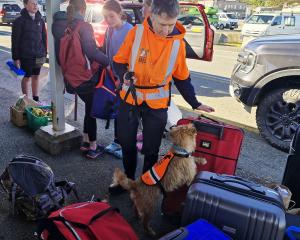
The council yesterday released its submission to the select committee on the Game Animal Council (herds of special interest) Amendment Bill which closed last Thursday.
The Bill, if passed, would allow the minister for hunting and fishing to establish herds of special interest (Hosi) in a national park and therefore exempt the herd from extermination or eradication requirements under conservation legislation.
The council was fully supportive of the Bill.
It said in its submission to achieve effective and inclusive conservation, hunting needs to be integrated into "our conservation narratives".
"By engaging hunters as partners in conservation, we not only harness their expertise but also embody a more comprehensive approach to environmental stewardship.
"Hunters play a crucial role in controlling game animal populations, harvesting more than 350,000 big game animals annually (including deer), which exceeds government pest control efforts."
The council said hunters and conservationists were often seen as opposites, but they shared common aspirations for protecting nature — driven by different motivations, but united in purpose.
Current conservation law and policy did not recognise these different motivations or values that people held for conservation land.
The Hosi mechanism enabled game animal management while protecting biodiversity on public conservation lands. It aimed to support hunting while preserving conservation values, the council said.
Hosi were designed to focus on herds highly valued by hunters.
So far two applications had been made — for sika deer in the Kaimanawa and Kaweka Forest Parks and wapiti deer in Fiordland National Park.
Game animals were only currently referenced in terms of extermination.
Having a Hosi in a national park was a new way of thinking about conservation.
The council said recreational hunting supported about 2500 jobs and the guided hunting sector directly employed more than 530 people and generated more than $100 million in annual foreign sales.
"There is a growing interest in sustainable, wild-harvested meat. Using taxpayer money to remove a reliable source of high-quality protein undermines public benefit," it said.
"The management of the quality and quantity of game animals harvested by hunters has the potential to offer more effective control than an expansion of government control efforts."
The council in its submission said hunters were only permitted to reduce or exterminate the very animals hunters sought to access.
The submission also said game animals did not stay within mapped boundaries.
Without physical barriers, game animals would cross between land ownership boundaries.
Limiting Hosi management to one land ownership would lead to inconsistent and inefficient management.
The council wanted to adopt a more unified approach that spanned all land ownership types and it needed more power to assist the minister in establishing and managing a Hosi.
A Parliament spokesman said it was unable to say how many submissions were made to the Bill. The number would be released by the Environment Committee which would hear submissions. — APL












